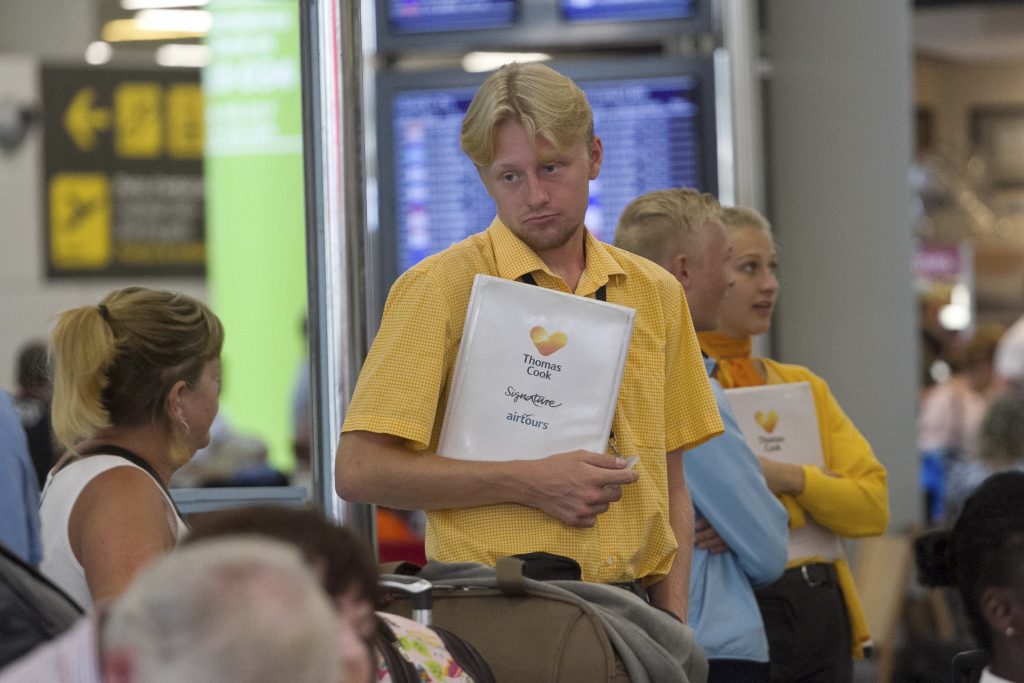Skift Take
This week in digital, we take a closer look behind the collapse of Thomas Cook and what the company's failure to adjust to the changing economy means for the future of packaged vacations. Meanwhile, Southeast Asia's travel is on the rise thanks to the growth of budget hotels.
Digital Travel News Weekly Roundup
Throughout the week we post dozens of original stories, connecting the dots across the travel industry, and every weekend we sum it all up. This weekend roundup examines digital trends.
For all of our weekend roundups, go here.
Debt, Egos and Bad Decisions: How Thomas Cook Failed to Adapt to a New Era of Travel: Thomas Cook’s collapse was a disaster played out in slow motion. An ill-fated acquisition spree, a bloated retail footprint, and a commoditized product left it unable to deal with changes in consumer behavior and economic shocks.
What Is the Future of Packaged Vacations After Thomas Cook’s Collapse? Package holidays are changing and under pressure, but in markets such as the UK, Germany, China, and Canada, these offline options still have their place. Failure to adapt was a contributing factor in Thomas Cook’s failure, but there were a whole bunch of other things going on as well.
New Resort Fee Legislation Would Disrupt How Hotels Are Sold Online: Some hotels view resort fees as key to business and argue that they are already transparent in how they advertise them. Consumers, states, and now federal legislators are putting great pressure on that notion.
Travel Advisors Play Fare Vetter as Cruise Fees Escalate: The low base fares promoted by some budget and mid-level cruise lines rarely indicate what the actual cost of a sailing will be. Travel advisors are stepping in to advise clients about onboard charges and, in some cases, showing that a higher-end cruise with all-inclusive pricing is actually a better value.
Budget Hotels Drive Southeast Asia’s Online Travel Growth to $34 Billion: Like low-cost carriers before them, low-cost hotel chains are playing a big role in the growth of online travel in Southeast Asia, according to a Google report.
Skyscanner Wants to Be Instagram-Like in Selling Flights: We can shop for TVs and clothes on our phone, but booking flights remains stubbornly old school. Skyscanner is one of a few online players working with airlines to fix that.
Airbnb Launches Its First Animal-Friendly Experiences Category: Airbnb Experiences continues to expand as the company launches its first animal-friendly category. The company encourages animal lovers to put away their tech devices with the funny dog videos and connect with wildlife in a safer environment. It’s just good business for Airbnb too.
Events Are Personal. Tech Is Not. How the Two Are Reconciling: Events are held for a reason: Companies know that face-to-face interactions and in-person experiences are vital for business. The only problem is that those things are notoriously hard to measure.
Data on Event Attendees Is Scattered. Here’s How to Fix It: Event tech companies have to deal with the reality that events are very personal, often making it hard to gather and analyze data on attendees. An all-in-one software platform might help.
TripAdvisor to End Ticket Sales to Attractions Featuring Captive Marine Mammals: With its new policy, TripAdvisor is making a clear statement about the use of marine animals for entertainment. It will be interesting to see how companies like SeaWorld react.
Hotel Data Giant STR Acquired for $450 Million: Data and analytics are not just vital in the contemporary hospitality ecosystem but also big business. CoStar’s acquisition of STR shows the overlap between traditional commercial real estate and the global hotel market.
BCD Travel Pushes Further Into South Africa With Strategic Merger: This is just the latest in a long string of similar moves from BCD Travel. Expect more mergers and acquisitions to follow, especially in Africa and the Middle East.
New Corporate Travel Platforms Put Travelers First: What a Concept: Travel management startups are targeting employees at small businesses, in the hopes they’ll influence management. This strategy is working, and even larger companies are starting to change the way they design their travel policies.
More Companies Favor Traveler-First Startups for Biz Travel: Employees are having more of an impact on how companies choose their travel policies. This has big implications for the future of corporate travel.
Catch Skift Global Forum 2019 Interviews, Now on Video: It’s not too late to join the party. If you missed Skift Global Forum last month, we have your back. Videos from our session interviews with travel CEOs and leaders are now available.
Aero Raises $16 Million for Air Service for Millennials: Travel Startup Funding This Week: This week, the startups Aero, TravelBank, Impala, Quicko, and Fyle together announced more than $45 million in funding.
Get Skift Research
Skift Research products provide deep analysis, data, and expert research on the companies and trends that are shaping the future of travel.
Have a confidential tip for Skift? Get in touch
Tags: digital, Travel Trends, trends roundups
Photo credit: A Thomas Cook staff member looks forlorn while speaking with a passenger following the company's collapse. Francisco Ubilla / The Associated Press
